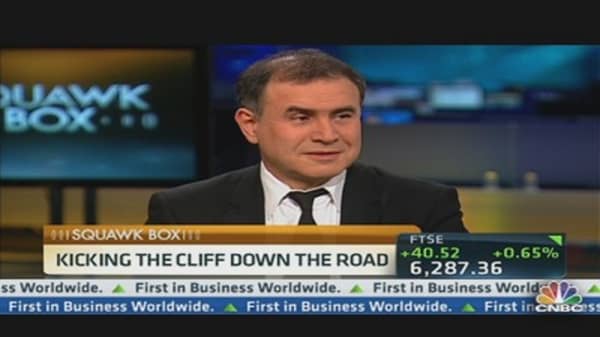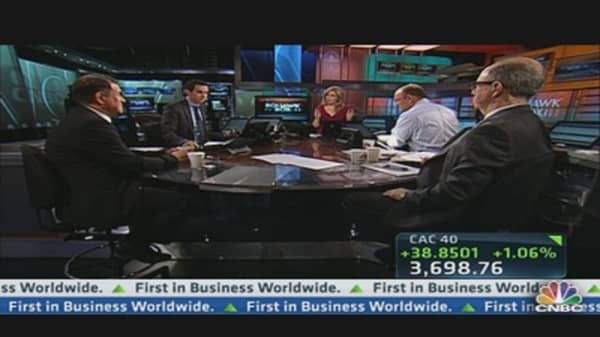The "easy money" policy of the Federal Reserve will continue for "as far as the eye can see" and that's going to continue to be good for the U.S. stock market, noted economist Nouriel Roubini told CNBC on Tuesday.
"When you look at the [mixed] economic data, there's a gap between the fact that the markets, rightly so, are buoyant," he said, "because middle of last year central banks had done another massive round of quantitative easing."
(Read More: 'Very Favorable' Momentum for US Stocks: Goldman's O'Neill)
"Some of the improvement in the markets is not because growth is picking up ... certainly easy money implies asset inflation," Roubini said.





